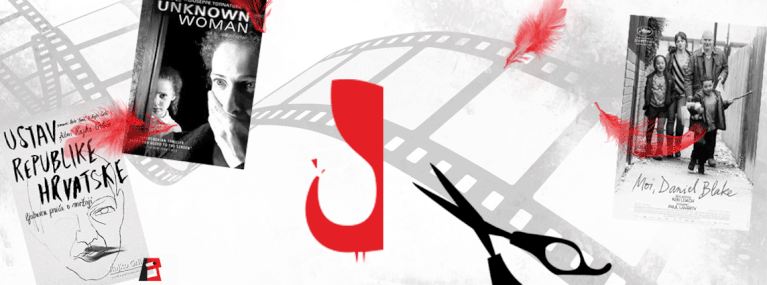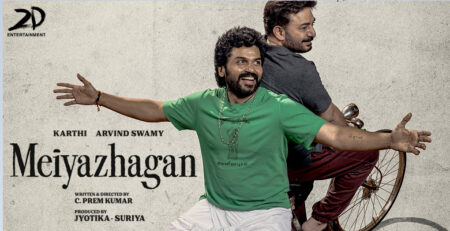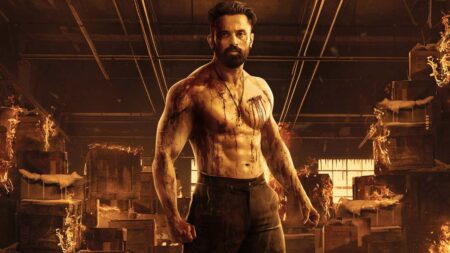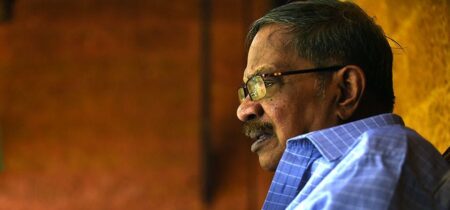The Goa film fest signals honest filmmakers are rightly mapping the turbulence of our times
The latest edition of the International Film Festival of India just ended in Goa. The event didn’t attract a huge crowd like previous festivals did. The impact of demonetisation was one of the reasons for the low attendance. The event had a rather curious start. In his opening speech, I&B minister Venkaiah Naidu urged filmmakers to show love without body contact. This instance was enough to make one feel these are interesting times for Indian Cinema. The country’s censor board is already lecturing filmmakers on Indian Culture they must endorse. And that is making things even more interesting. Recently, the selection of films for Indian Panorama came in for a lot of criticism. So, film enthusiasts were keen to see the bouquet of World Cinema IFFI was going to showcase.
Some mediocre films did make their way to the World Cinema list. Yet, there was enough for those who were looking for best from the masters of contemporary cinema. Films from Europe focused on the rise of religious orthodoxy and its impacts on life. Republics of erstwhile Yugoslavia presented the anxiety on the rise of Ultra nationalism. They also tracked lives separated across the new borders of Serbia, Croatia, Kosovo and so on. The much anticipated I, Daniel Blake by Ken Loach also made it to Goa. The film had won the Palme D’Or at Cannes. Also in fray were films from masters such as Asghar Farhadi, Jim Jarmusch, Andrei Konchalovsky, Cristian Mungu, Alejandro Jodorowsky, Bruno Dumont, Dardenne Brothers and Brilliante Mendoza.
A few others also grabbed attention for their brilliance in portraying contemporary politics. Student, a film in the competition section by Kiril Serebrennikov, is an example. had a notable theme of orthodox Christianity making a comeback in Russia. The story: A high school student high on religion refuses to undress at swimming classes. He quotes the Bible to argue why undressing is against religion. He shares the argument with girls in his class. Interestingly, the principal takes kindly to him. Bible quotes pop up on screen when the student utters rules based on the Holy text. He uses them to substantiate his claim that the rules are indeed from the Bible.
The movie has many interesting scenes. In one, the student dresses up as a Gorilla to protest teaching evolution in the class. He creates chaos in classroom to protest sex education, and so on. The student’s concerns find sympathy from the history teacher as well as the principal. At some point, the Jewish origin of the science teacher gets some ridicule. Students even get assignments on ‘Stalin as an efficient manager’. Such examples take a direct dig at the autocratic tendencies of the Putin regime. They also hint at the growing fascination for such authoritarian tendencies across the globe.
The film cocks a snook at the mandatory religious education Russia enforced a few years ago. It also shows how the Russians who saw state mandated atheism during the Soviet days is taking to that transition. The film keeps you engaged, making you philosophize, and has some rich visuals.
The Constitution by Rajko Grlic (Croatia) is another interesting movie. It caught the attention of many for the right reasons; it is a love story about hate. The movie revolves around four individuals. They live in an apartment in Zagreb. They have different beliefs, sexual orientation and political views. One of the four is a professor who is a transvestite, living alone with his incapacitated father. Their neighbour is a nurse who is married to a Serbian working with Croatian police. The ideology of hate prevailing in Croatia considers the gay professor an enemy. The professor is an ultra nationalist and has nothing but hate towards the Serbians. Once a homophobic crowd attacks the professor brutally. His neighbour, the nurse, treats him. She in turn asks the professor to help (tutor) her husband pass an exam on the Croatian constitution. The movie unfolds as they try to start knowing each other and start putting their beliefs to test. “Intolerance and hatred are not unknown concepts in Europe in general,” says the film’s director. “In the last couple of years, it is as if a new wave of intolerance, ideological blindness and fanaticism is spreading.
He adds that hatred between nations, religions, natives and immigrants, haves and havenots are fast sweeping across Europe. He continues: “If the saying ‘Hate is local!’ is true, and I believe that it is, then every local hate, like the one this film is about, will be comprehensible to each person in Europe who has ever hated or been hated.”
Ken Loach’s I, Daniel Blake is a touching one. It is also the story of the current economic conditions in the UK. While it discusses the present for the UK, for many economies like ours it is a pointer to the future. Daniel Blake once suffered a heart attack. He is not in a position to work now, is on an eternal struggle to keep his disability benefits going. The system wants him to prove that he cannot work. As long as it is not proven he needs to be on employment support where he should be looking for jobs. The movie gets deep and direct when it exposes the erosion of the social security system. The layers of bureaucracy which prevents Daniel from getting what he deserves, humiliates him. He is even forced to retaliating. The movie mentions many time about people who give up on social benefits. All thanks to a system which doesn’t have a human face at all. It works hard to deny the benefits, than making it easy for people to avail it. It is a sneak peek into an individual’s life in a social democracy in the west. These systems are struggling to hold on to welfare following attacks from neoliberal capitalism. The movie is so realistic that British Labour Party leader Jeremy Corbyn asked Prime Minister Theresa May to watch it. He said it will help her understand the institutional barbarity in the sanctions system, which pushes many like Blake into extreme poverty.
The Unknown Girl by Dardenne Brothers takes us on a journey through immigrant lives. It also details a deteriorating healthcare system for people living on society’s margins. Saint George, a Portuguese film, captures the darkness surrounding the debt crisis. It shows how the calamity wrecked Portugal’s economy and how loan collectors ruined lives of many who couldn’t clear loans. Orthodox religion, a crumpling economic system, politics of hate. This trio of problems faced by humankind today is just a pointer to the many more to come. The days to come are going to be tough. As has been in the past, those with a movie camera in hand are turning it towards the right direction. And they do that to tell us the stories that are hard hitting. They do that with all the honesty they can muster.




